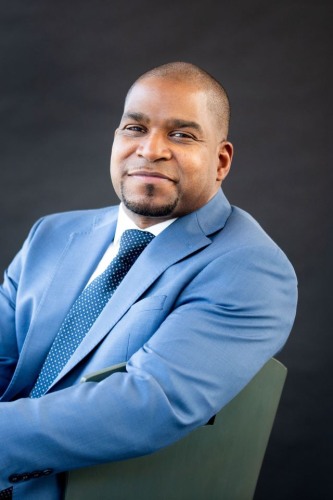The Ralph J. Bunche Award is presented annually by the American Political Science Association (APSA) to honor the best scholarly work in political science that explores the phenomenon of ethnic and cultural pluralism.
Read Article
Political Science

Melvin Rogers
Edna and Richard Salomon Distinguished Professor of Political Science
Areas of Expertise
Political Theory, History of American and African American Political Thought, Race, Ethnicity, and Politics
2025-26
On Leave
Biography
Melvin Rogers is Edna and Richard Salomon Distinguished Professor of Political Science. He has wide-ranging interests in contemporary democratic theory and the history of American and African-American political thought.
He is the author of The Undiscovered Dewey: Religion, Morality, and the Ethos of Democracy (Columbia University Press, 2008) and The Darkened Light of Faith: Race, Democracy, and Freedom in African American Political Thought (Princeton University Press, 2023). He is the editor of John Dewey, The Public and its Problems (Ohio University Press, 2016) and co-editor (with Jack Turner) of African American Political Thought: A Collected History (University of Chicago Press, 2021), a collection of 30 essays on figures in the tradition of African American political thought. His articles have appeared in major academic journals and popular venues such as Dissent, the Atlantic, Public Seminar, and Boston Review.
In addition to his published writings, Professor Rogers serves as the co-editor of the Oxford New Histories of Philosophy book series. The series focuses on the unattended voices in the history of philosophy.
He received an M.Phil in Political Thought and Intellectual History from Cambridge in 2000 and a Ph.D. in Political Science from Yale University in 2006.
Awards
The Darkened Light of Faith: Race, Democracy, and Freedom in African American Political Thought (Princeton University Press, 2023) is the winner of three awards.
- The Ralph J. Bunche Award, American Political Science Association
- David Easton Award, The Foundations of Political Theory section of APSA
- Best book on American Political Thought published in 2023, American Political Thought section of APSA